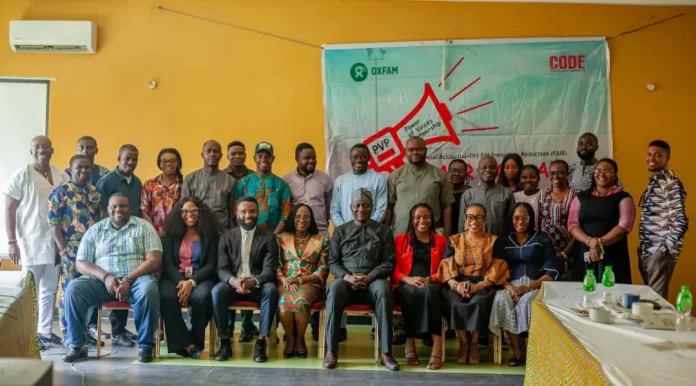As the Freedom Of Information (FOI) Act awaits domestication in Akwa Ibom State, a civil society organisation, Connected Development (CODE) has encouraged the state government to muster sufficient political will to train its staff in the Ministries, Departments and Agencies, MDAs, on the provisions and importance of the law.
Prof Adewale Aderemi, Director, Democratic Governance at National Institute of Legislative and Democratic Studies (NILDS) gave the charge in Uyo on Friday during a capacity building workshop for all the 26 state legislators and aides, organized by CODE in partnership with OXFAM.
Aderemi who spoke on ‘Strategies and Steps in Domesticating Freedom of Information Act’, said such trainings would not only enable government officials to understand the importance of disclosing information on request for accountability but reduce corruption and enhance intelligent public relations.
He also noted the importance of wider consultations of relevant stakeholders before promulgation of the act so as to capture local realities and allow the people own it (law) thereafter.
According to him, “For any law to work well, you need to take ownership of it. You need to direct your interest and know that you designed it and calibrated it to suit your own local exigency.
“The National Act may not tick all the boxes in regards to Akwa Ibom, I think that in domesticating it, Akwa Ibom should make it work. The state as a matter of urgency should not only pass the bill but should muster sufficient political will to make it work and train its MDAs , record keepers on the provisions of the Act
“It is important that in promulgating that act there should be a wide spread consultations so that local realities are captured.”
Presenting a paper on ‘Social Media and State Legislation’, Ruth Okafor, Programme/ Community Development Associate of CODE urged the legislators as well as the executives to consider using social media to engage meaningfully and robustly with the public especially the youths.
She noted that effective use of social media in engagements should not foreclose the use of other traditional and conventional methods of communication such as the radio, television or newspaper.
Okafor explained that the use of social media by government does not only increase accessibility and reach but cost effective for public engagement and feedbacks even as she noted that it enhances transparency and accountability.
She said, “Government bodies and legislators should also use social media to proactively disclose information. They should be shown how other governments, agencies use platforms like Twitter, Facebook and Instagram to publish reports, budgets and other public interest information.”
Share your story or advertise with us: Whatsapp: +2347068606071 Email: info@newspotng.com










